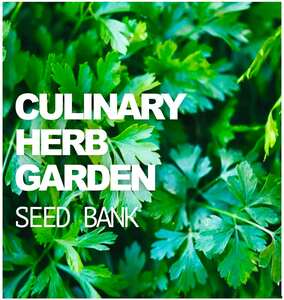Lasting Gardening Practices for an Eco-Friendly Garden
Lasting Gardening Practices for an Eco-Friendly Garden
Blog Article
Comprehending the Various Kinds of Gardening and How They Add to a Healthier Lifestyle and Environment

Advantages of Veggie Gardening
Lots of people are significantly acknowledging the myriad benefits of veggie gardening as an important element of a healthier way of living. Taking part in veggie horticulture provides countless physical wellness benefits, consisting of enhanced physical task, which improves cardiovascular health and wellness and advertises general fitness. The act of growing, weeding, and harvesting calls for motion and can assist battle inactive behaviors, adding to weight administration and boosted muscular tissue tone.
Moreover, growing one's own veggies considerably enhances nutritional top quality. Native fruit and vegetables is usually fresher and more nutrient-dense compared to store-bought choices, as it can be taken in shortly after harvest. This ease of access encourages a higher intake of fruits and vegetables, which are vital for stopping persistent conditions.
Furthermore, vegetable horticulture cultivates mental health by supplying a healing outlet for tension relief and relaxation. Jointly, these advantages underscore the value of vegetable horticulture as a foundation of a healthier lifestyle.
Discovering Blossom Gardening
In addition to visual benefits, flower horticulture sustains regional ecological communities. Many flowering plants draw in pollinators, such as bees and butterflies, which are vital for keeping biodiversity. The visibility of diverse vegetation can likewise improve soil health, as various plants contribute to vitamins and mineral biking and boost soil structure.
In addition, blossoms can play a substantial duty in advertising lasting techniques. Many garden enthusiasts go with indigenous or drought-resistant species, which call for much less water and marginal chemical inputs. This technique not just benefits the environment yet likewise motivates liable gardening behaviors.
Eventually, flower horticulture offers as a crucial component of an all natural gardening approach. Gardening. By cultivating elegance and supporting regional ecological communities, it balances with vegetable gardening and underscores the value of supporting both our physical and mental wellness through nature
Container Horticulture Benefits
Container gardening deals numerous advantages that make it an attractive option for both novice and seasoned gardeners. Among the primary advantages is its convenience; containers can be placed on patio areas, verandas, or perhaps inside, enabling for gardening precede with minimal ground accessibility. This flexibility enables individuals in metropolitan atmospheres or those with little backyards to cultivate plants effectively.
Additionally, container horticulture offers improved control over soil top quality and wetness levels. Garden enthusiasts can select particular dirt blends to optimize plant health and wellness and alleviate problems like weeds and bugs. The movement of containers additionally permits very easy relocation to make best use of sunlight exposure or safeguard plants from stormy climate.
Furthermore, container gardens can be cosmetically pleasing, offering a chance for creative thinking in design. Gardening. They can act as ornamental elements that boost outside or interior areas while advertising biodiversity by attracting pollinators
Finally, container horticulture can add read the article to a healthier way of living by urging physical task, as it typically entails lifting, growing, and preserving plants. Overall, the benefits of container horticulture make it an obtainable and rewarding practice for those looking for to enhance their lifestyle and environment.
The Surge of Vertical Gardening
As city areas become increasingly crowded, the pattern of upright gardening has actually taken off, enabling people to maximize their gardening possibility in restricted locations. This innovative technique includes expanding plants in vertical frameworks, such as wall-mounted planters, trellises, or specialized vertical garden systems. The charm of vertical horticulture lies not only in its efficient use of area but additionally in its aesthetic payment to urban atmospheres, changing bare walls into rich eco-friendly landscapes.
Vertical yards can be installed in homes, porches, and neighborhood rooms, giving a platform for expanding a range of plants, including natural herbs, vegetables, and decorative blossoms. This method encourages biodiversity and can enhance air high quality by filtering contaminants while advertising a connection to nature in largely inhabited locations. Furthermore, upright horticulture offers functional benefits, such as improved return per square foot, making it an attractive option for urban gardeners looking for to grow their very own food.

Lasting Practices in Gardening
Embracing lasting practices in gardening is essential for promoting environmental health and guaranteeing the feasibility of our natural sources. Sustainable horticulture methods concentrate on minimizing ecological effect, saving water, and fostering biodiversity. By executing practices such as natural horticulture, garden more helpful hints enthusiasts can reduce making use of synthetic fertilizers and pesticides, which can damage regional environments.
Companion planting is one more effective sustainable method, where specific plants are grown with each other to boost growth and deter insects naturally. Furthermore, using indigenous plants in landscaping sustains local wildlife and needs much less upkeep, as they are inherently adjusted to the local climate and dirt problems.
Water conservation strategies, such as rain harvesting and drip watering, assistance to successfully manage water sources, hence decreasing waste. Moreover, composting organic waste not only enriches the soil yet additionally lowers landfill contributions, promoting a round economic situation.
Lastly, exercising plant rotation and cover chopping boosts soil wellness and lowers the threat of pest problems. By incorporating these lasting methods, gardeners can develop resilient ecosystems that contribute to a much healthier way of life while securing the setting for future generations.
Verdict

Finally, the diverse approaches of gardening, consisting of veggie, flower, container, and vertical horticulture, jointly promote you can find out more a healthier way of living and boost ecological sustainability. Each kind uses unique advantages, from giving fresh fruit and vegetables and drawing in pollinators to enhancing limited spaces and motivating biodiversity. By fostering lasting practices, these horticulture comes close to not only add to specific wellness but also sustain more comprehensive eco-friendly conservation initiatives, ultimately lowering dependence on industrial agriculture and improving community resilience.
Report this page